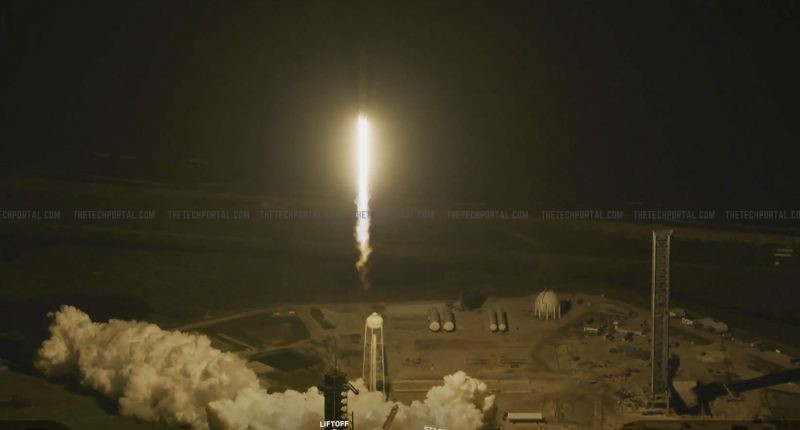The Axiom Mission 4 (Ax-4), marking the fourth private crewed flight destined for the International Space Station (ISS), successfully lifted off today, June 25, after several delays. This mission brings together astronauts from India, Hungary, and Poland, marking a continued expansion of access to orbital space through private ventures. The crew departed from Launch Complex 39A at NASA’s Kennedy Space Center aboard a new SpaceX Dragon spacecraft, propelled by a Falcon 9 rocket. Liftoff was set for 2:31 AM EDT.
Liftoff of Ax-4! pic.twitter.com/RHiVFVdnz3
— SpaceX (@SpaceX) June 25, 2025
The four-person crew includes Peggy Whitson, a former NASA astronaut and Axiom Space’s director of human spaceflight, who will command the mission. Piloting the spacecraft is Group Captain Shubhanshu Shukla of the Indian Air Force, representing the Indian Space Research Organisation (ISRO). Mission specialists Sławosz Uznański-Wiśniewski from Poland and Tibor Kapu from Hungary, both affiliated with the European Space Agency (ESA), complete the multinational team. For Poland and Hungary, this marks their nations’ first human presence aboard the ISS.
Post a successful launch, Stage 2 of the Falcon 9 successfully separated from the Dragon spacecraft, putting it into an orbit around the Earth. The Dragon spacecraft is expected to link up with the International Space Station’s Harmony module around 4:30 PM IST on Thursday, June 26, after its journey. The private astronauts are slated to spend about two weeks on the orbital outpost, and work on a range of scientific investigations, educational outreach activities, and commercial endeavors.
As has been a norm with most Falcon 9 launches, first stage booster was successfully recovered in a near picture-perfect landing back on earth.
Group Captain Shubhanshu Shukla’s participation will make him the second Indian to travel to space, following Wing Commander Rakesh Sharma’s 1984 mission. The mission will also provide Shukla with hands-on experience in orbital operations, living in microgravity, and working in a multinational crew environment. Such experience is fundamental for India’s own human spaceflight program, Gaganyaan, which aims to launch Indian astronauts to space by 2027.
The Ax-4 mission’s scientific agenda is extensive, encompassing some 60 experiments and demonstrations from 31 countries. Group Captain Shukla will conduct seven experiments specifically for India. These studies address various aspects of space biology and tech. Research areas include muscle regeneration, cultivation of sprouts and edible microalgae in microgravity, the resilience of aquatic organisms, and human interaction with electronic displays in space.
Furthermore, NASA and ISRO will engage in five joint scientific investigations and two in-orbit STEM (science, technology, engineering, and mathematics) demonstrations. For this endeavor, NASA is responsible for supervising all integrated operations, from the spacecraft’s initial approach to the station, throughout the crew’s time aboard, and until their departure, to maintain safety and operational consistency.
The launch is way overdue, and comes after Ax-4 mission experienced several delays from its initial target launch date of May 29. These delays resulted from a combination of technical issues and environmental considerations. Previous concerns included observations related to an electrical harness on the SpaceX Dragon spacecraft and a liquid oxygen leak on the Falcon 9 rocket. Additionally, slight pressure fluctuations were observed within the ISS’s Russian Zvezda service module; these needed to be evaluated and addressed prior to any new crew arriving. Recent repairs to the Zvezda module and a favorable weather forecast, reported at 90%, have now positioned the mission for its current launch window.
“NASA and Roscosmos have a long history of cooperation and collaboration on the International Space Station. This professional working relationship has allowed the agencies to arrive at a shared technical approach and now Axiom Mission 4 launch and docking will proceed,” Janet Petro, acting Administrator at NASA, commented on the matter. “We look forward to the launch with Axiom Space and SpaceX for this commercial international mission.”
The Tech Portal is published by Blue Box Media Private Limited. Our investors have no influence over our reporting. Read our full Ownership and Funding Disclosure →






